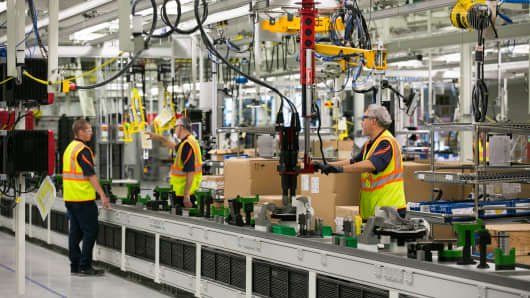HONG KONG — Investors trying to sniff out signs of the next recession should pay attention to any increase in unemployment rather than movements in bond yield curves and manufacturing, says Credit Suisse Chief Economist James Sweeney.
The question of when the next downturn will hit is always worrisome. Recent movements in the U.S. bond market in the form of an inverted yield curve — which occurs when short-term rates surpass longer-term yields — drew a lot of attention, as it's often seen as a recession warning. The weakness in global manufacturing has also raised concerns.
Still, Sweeney says those are not currently compelling reasons to be alarmed. The overall labor market is what investors want to watch, he said Thursday during a presentation at the Credit Suisse Asian Investment Conference in Hong Kong.
"That's not such a lead indicator for recessions anymore, in my view," said the economist, referring to the inverted yield curve and manufacturing data.





